How I Launched a Profitable Dropshipping Store with Just $500 in 7 Days
 Cynthia
CynthiaChallenge Setup and Ground Rules
Background
The challenge goal was to validate whether it’s possible to build a profitable ecommerce store with only $500, without relying on past customer bases or expensive product research tools.
Setup Details
- Duration: 7 days
- Total Budget: $500 (including website, ads, products, domain, etc.)
- Prohibited: Paid spy tools (AdSpy, PPAds, etc.)
Initial Spending Breakdown
Item | Platform | Cost | Link |
Shopify Trial | Shopify | $1 | https://www.shopify.com |
Auto-fulfillment Trial | AutoDS | $1 | https://www.autods.com |
Domain Registration | GoDaddy | $12 | https://www.godaddy.com |
Video Ads | Viral Ecom Ads | $95 | https://www.viralecomads.com |
Total First Day Spending: $109 (22% of budget)This chapter lays the foundation for the challenge and constraints.
Product Research Without Paid Tools
Strategy Goal
Discover high-potential products from social platforms without any paid product research plugins.
Step-by-step Strategy
- Train Instagram Algorithm: Search for “Shop now” and “Sponsored” posts. Like and click on all product ads to influence algorithm.
- Search TikTok Keywords: Use terms like “TikTok Shop” or “TikTok Made Me Buy It,” stay engaged with purchase-related videos.
- Notion Tracker: Manually record promising products with columns like name, platform, video link, likes, comments, price, estimated cost, margin, customization potential, and competitor validation.
- Scoring Criteria: Based on four dimensions: Visual Impact, Differentiation, AOV Range, Add-on Potential.
Final Product Chosen
- Customizable Heart Pendant + Beads
- Source: Instagram + Facebook Ad Library
- Concept: Heart pendant with up to 5 personalized beads (names of mom, kids, pets)
- Monetization: Starts at 1 bead, $3 per additional bead; AOV easily reaches $60-$110
- Supply Chain: AliExpress sellers found, ~$6 cost
- Competitor Proof: $17K/day in sales from competitor
Not Chosen Products
- Map Coordinate Necklace – too slow in fulfillment
- Helmet Rack – weak visuals and limited audience
- Shapewear – saturated and negative reviews
- heat score
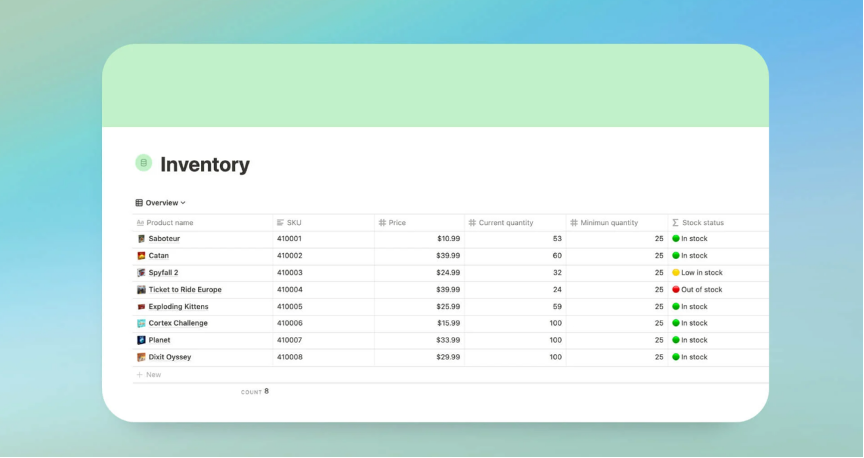
- Supply chain feasibility
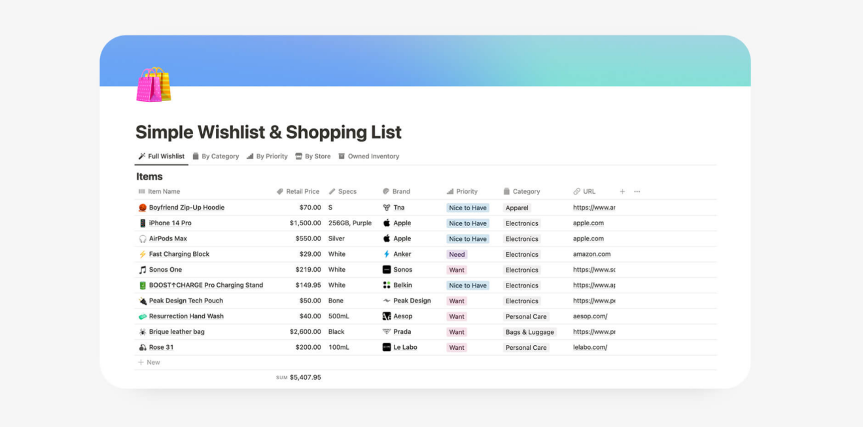
- AOV
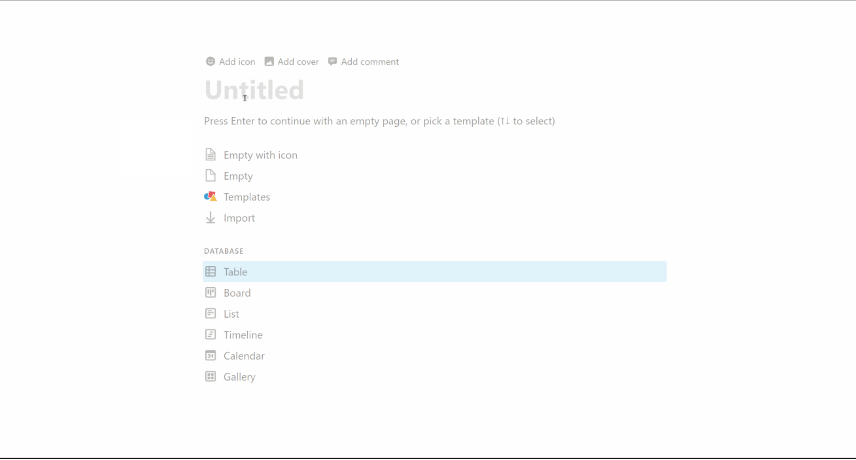
Notion product tracker showing heat score, supply chain feasibility, and AOV.
Pic Copilot Suggestions: Use: https://www.piccopilot.com/template/Mothers-Day
- Generate gift scenes for Mother’s Day
- Create bead personalization demo GIFs for TikTok ads
Chapter 3: Brand Creation and Domain Registration Workflow
Step 1: Generate Brand Names with AI Tools
Once the product was confirmed to be a customizable jewelry item, the brand had to feel emotional, elegant, and trustworthy. The creator used Claude AI with the prompt:
“Give me a list of brand names suitable for personalized jewelry. Style should be gentle and emotionally appealing to women. I will sell heart-shaped pendants with name beads.”
Claude generated beautiful name suggestions like: - Hardestry - LoveLight Jewels - Mora Collection - Keepsake - Eternell
Initially, the creator leaned toward Hardestry, but the domain was taken. Then GoDaddy showed Cordova Jewels was still available—so it was immediately registered for $12.

GoDaddy homepage showing navigation bar and hosting service claims.
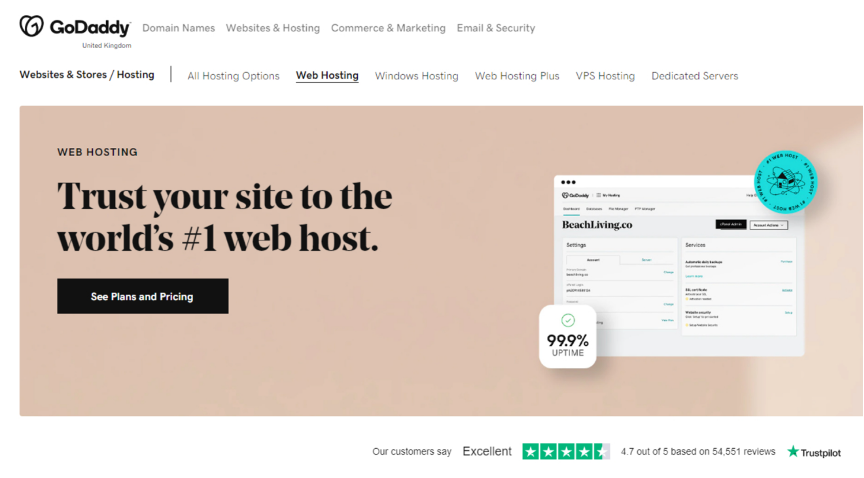
GoDaddy domain search interface with navigation tabs for domains, hosting, marketing, etc.
Step 2: Why Cordova Jewels Was Chosen
- Vague yet classy meaning, not limited to one jewelry form
- “Jewels” helps with search visibility and recognition
- Rare name on social platforms like IG and TikTok, easing future brand setup
Claude also helped create a comparison table for brand name availability across Instagram, Google, and Shopify.
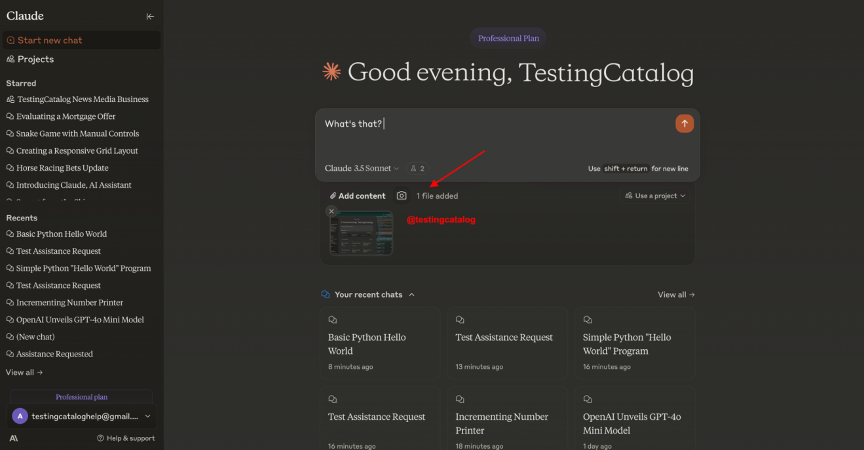
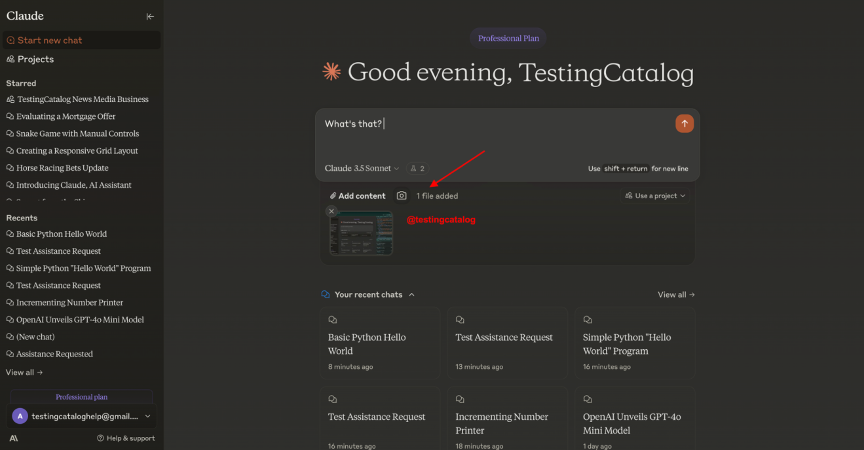
Screenshot: Alt text: Claude-generated brand comparison chart showing registerability, emotional tone, and style score.
Step 3: Create Email and Brand Accounts
After registering the domain, the brand email cordovajewels@gmail.com was created for: - Shopify registration - AutoDS order notifications - Submitting materials to video ad creators
This email is also used as the Facebook Business Manager admin account.
Pic Copilot Tip: Use: AI Templates - One-Click to Generate
High-CTR Main Product Images | Pic Copilot
Enter brand name “Cordova Jewels” + style prompt (e.g. elegant, customizable, female-friendly) to generate logo designs for social media profiles and homepage.
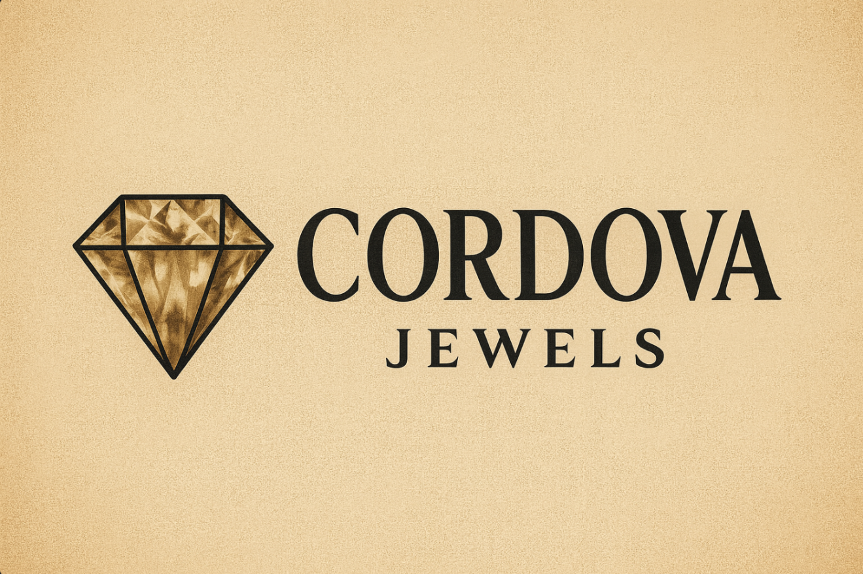
Shopify Store Structure and Product Page Setup
Step 1: Quick Launch with Shopify
The creator used Shopify’s $1-for-3-months free trial plan to register a new account. The domain “Cordova Jewels” was connected, and the store was built using AI Store Builder(an official Shopify integration).
The homepage, product pages, and cart were automatically generated.

Step 2: Theme Selection and Mobile Optimization
With over 90% of traffic expected to come from mobile devices, the visual layout and user experience needed to be mobile-first.
Steps: - Choose the “Dawn” theme (free and fast-loading) - Preview mobile view and adjust: - Logo size in header - Product page layout order: Image → Title → Price → Variant selector → CTA button → Description
Optimization tip: Avoid blank space above the fold. Ensure CTA buttons are always visible in the first scre

Step 3: Product Import and AutoDS Integration
Product Link Preparation:
Searched on AliExpress for “Heart Name Pendant + Custom Beads,” filtered for sellers with 4.8+ rating, and copied the product URL.
- AliExpress
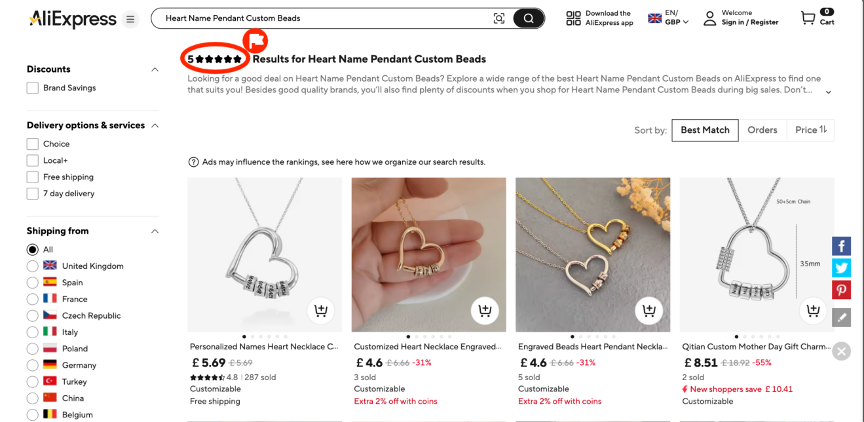
AutoDS Integration Steps:
- Log in to AutoDS and connect Shopify store
- Click “Add Product → Add URL” and paste AliExpress link
- Auto-import of SKUs, variants, and descriptions
- Manually edit product title, pricing, and shipping options (default to Epacket or AliExpress Standard)
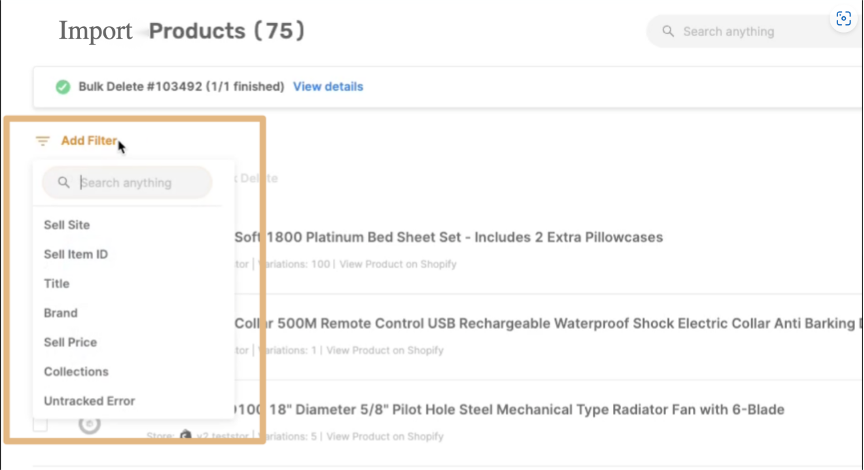
Step 4: Customizing Product Page Content
To enable personalization, the product page required:
Variant Dropdowns:
- Material: Gold, Rose Gold, Silver (no price difference)
- Number of Beads: 1–5 (each extra bead +$3)
Name Input Field:
- Text fields like “Emily” or “Lucas”
- Max 8 characters per bead
GIF Demonstration:
- Show bead customization (rotation, name placement)
- Ask video producer for reusable animation clips
Description & Copywriting:
- Use Claude AI to rewrite original product copy in a warm, gift-oriented tone
- Example line: “Celebrate every name that matters to you”
Pic Copilot Suggestions: Use: Free Online Background Removal - PicCopilot
Generate visuals like: - Name input instruction graphic - Bead pricing breakdown - Lifestyle photos of female model wearing pendant
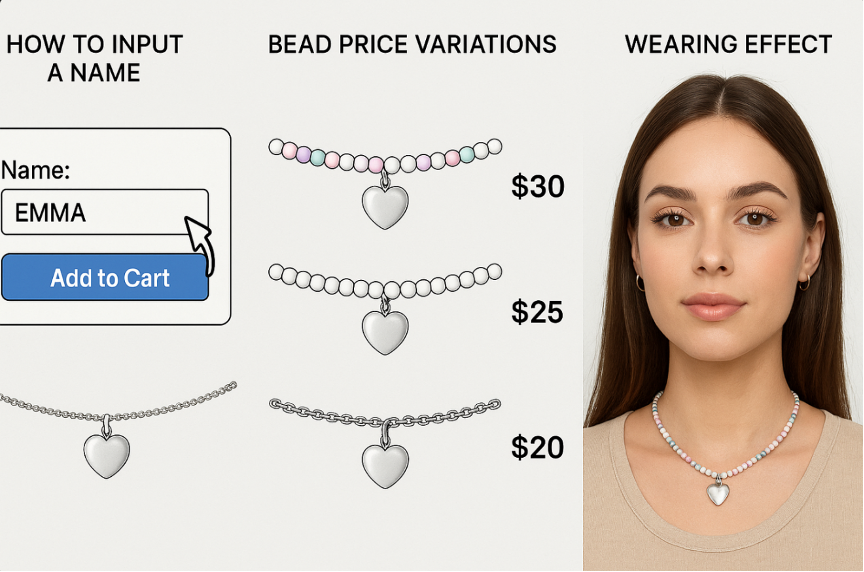
Ad Creative Production and Launch Preparation
Step 1: Ad Creative Sources and Strategy
To save time and budget, the creator did not film their own product video. Instead, they studied competitor ads and outsourced production to a professional ad agency.
Execution Process:
- Use Facebook Ad Library to search for “Heart Name Pendant” ads
- Select high-engagement videos with complete visuals
- Submit samples to Viral Ecom Ads, select the “3 Video Ads + Hook Test Package” for $45
- Provide brand name, competitor links, product highlights, and CTA instructions
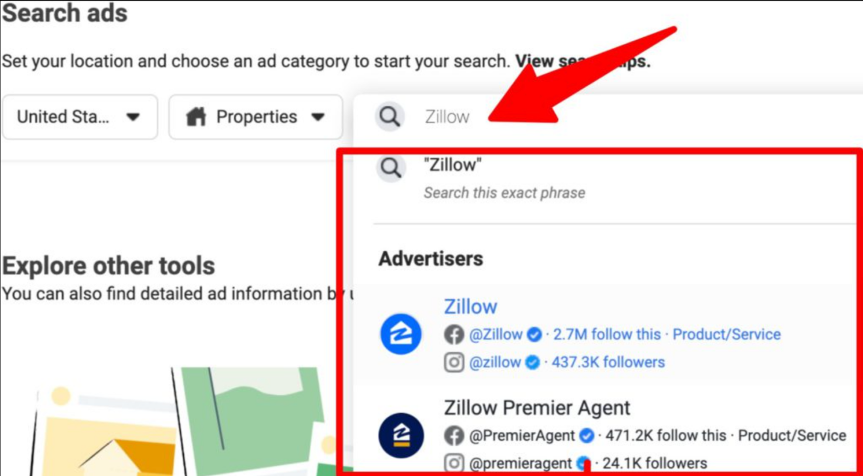

Step 2: Ad Structure and Copy Optimization
Each video followed a proven 4-part structure:
Hook
- Example: “This is the most touching gift I’ve ever given my mom”
- Styled as UGC (User-Generated Content) to simulate real-life moments like birthdays, holidays
Product Showcase
- Demonstrates pendant open-close, bead spinning, color variations
Emotional Trigger
- Copy: “Every name is a story”
- Soft piano music background to enhance emotional depth
Call to Action (CTA)
- “Tap to get your own personalized keepsake”
- Ending with “Limited Time Offer + Free Customization” banner
Step 3: Supplemental Visuals with Pic Copilot
To support the video creatives, the creator used Pic Copilot to generate extra static and banner images for: - Facebook/Instagram carousels - TikTok in-feed thumbnails - Product detail banners
Tools Used:
- Ad Image Generator: For gift-style visuals and 3-slide carousel sets
- Emotional Character Scenes: Diverse ethnic models (e.g. mother/daughter, couples)
- Cover Templates + Caption Overlay: Great for short video covers
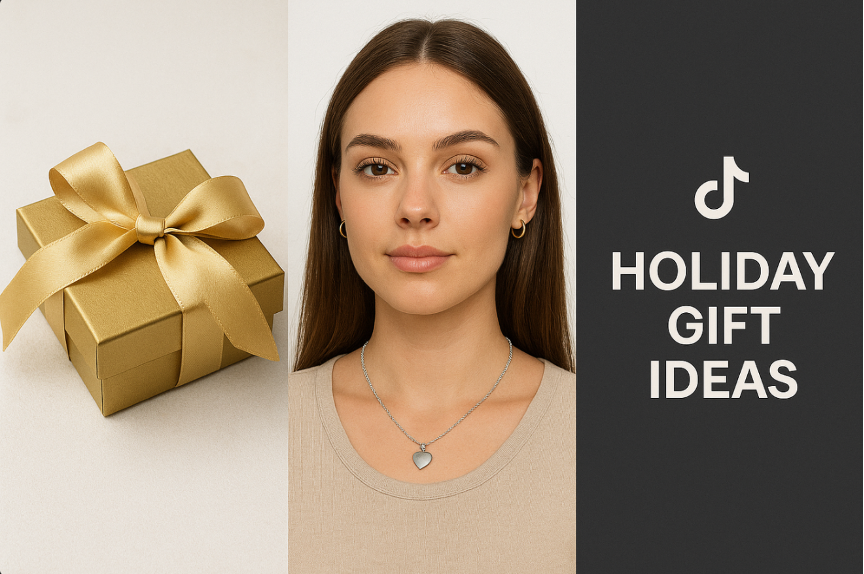
Ad Structure Setup and Budget Control
Step 1: Facebook Ad Account Setup
The creator used Facebook Business Manager to build the ad account:
- Registered Facebook account using brand email: cordovajewels@gmail.com
- Created Business Manager → Added domain → Verified ownership
- Set up “Sales Campaign” with Advantage+ CBO (automatic budget allocation)
- Campaign named “Cordova
- Pendant Split Test” with daily budget of $50 for round-one testing
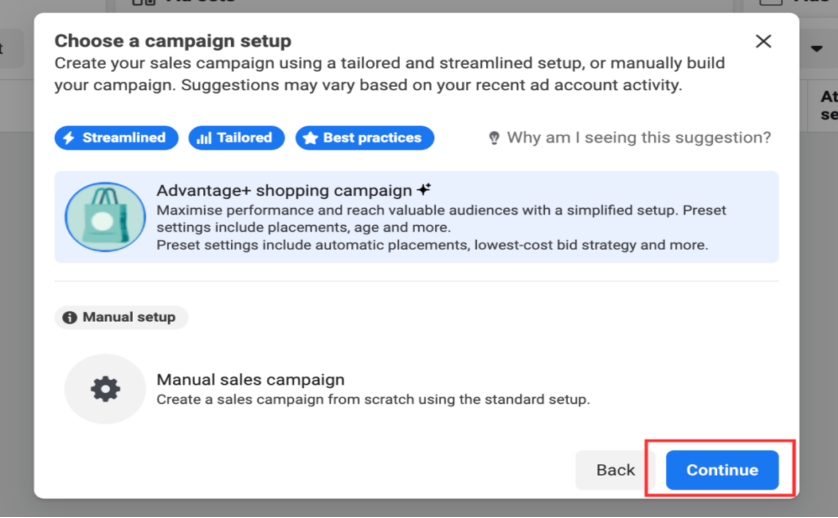
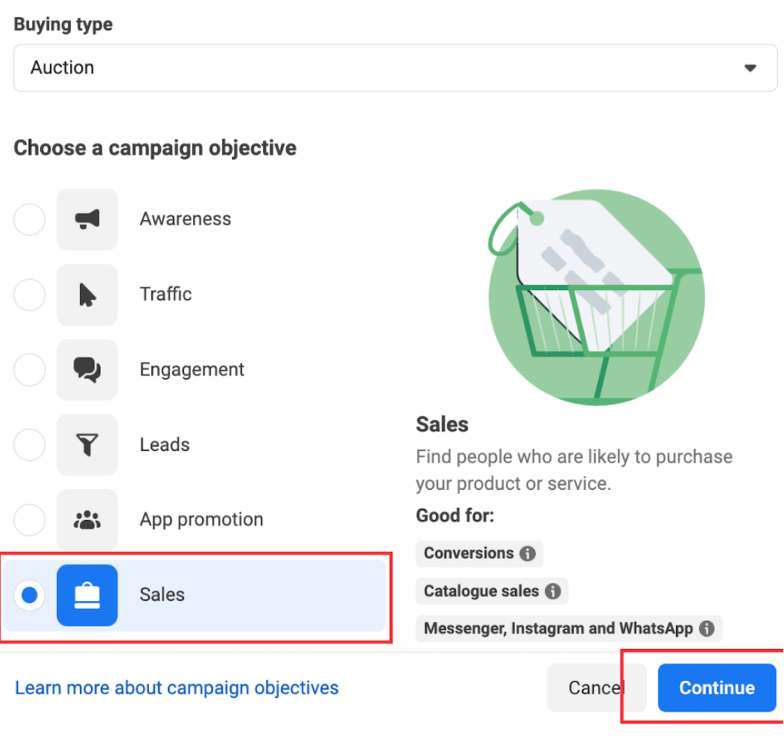
Step 2: Audience Targeting and Conversion Goals
Ad set configuration: - Location: United States (language: English) - Gender: All (copy leans female) - Age Range: 25–54 - Conversion Event: Purchase - Destination URL: Direct product page (not homepage)
⚠️ Facebook recommends not switching conversion goals too frequently as it resets the learning phase.
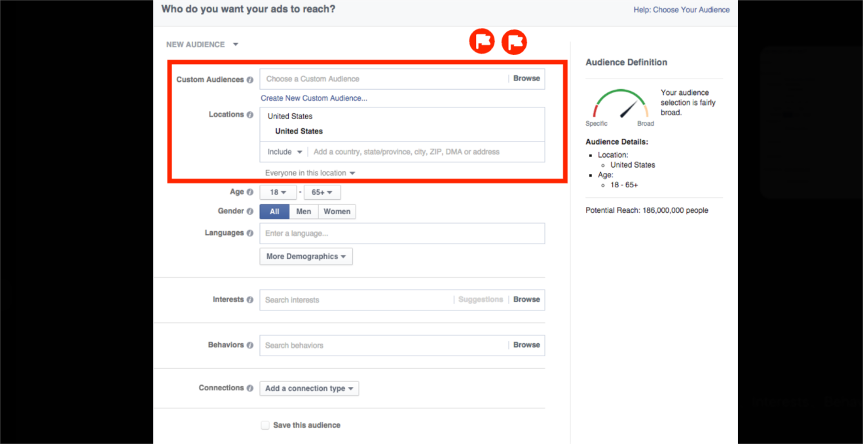
Step 3: Creative Variations and Testing Setup
The initial ad group included 3 creative variants:
- Video 1: “Gift for Mom” version (emotional hook focus)
- Video 2: “Romantic Partner” version (targeting couples)
- Video 3: Carousel of static images made via Pic Copilot
Each asset was paired with 2 headline variants, such as: - “A gift that’s truly hers” - “Five beads, five memories”
Used Facebook’s Dynamic Creative function to auto-test combinations for highest effectiveness.
Step 4: Daily Budget and Optimization Strategy
✅ Set daily testing budget at $50 with zero profit expectation for Day 1.
Key metrics monitored:
- CPM (Cost per 1,000 impressions): Target <$20
- CTR (Click-through rate): Target >1.5%
- CPA (Cost per acquisition): Target <$30
Checked ad performance every 6 hours to pause underperformers and redirect budget to top-performing 1–2 variants.
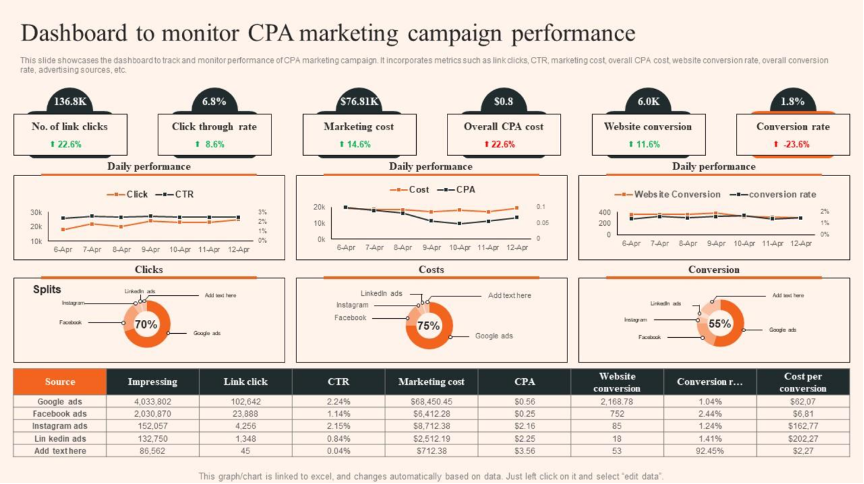
First 3 Days of Ad Performance and Conversion Analysis
Day 1 Recap: Launch and Early Metrics
The ads went live at midnight using Facebook’s CBO (Campaign Budget Optimization). Three creatives were launched (two videos and one image carousel). The campaign goal was initially set to Add to Cart to reduce testing friction.
Day 1 Results (text version):
- Best-performing creative: Video 1 (mother-oriented emotional hook)
- CPM: $13.27 — acceptable exposure cost
- CTR: 2.48% — significantly higher than Video 2’s 2.03% and static images’ 1.35%
- Add to Cart: 9 (more than half of total for the day)
Even though there were no purchases on Day 1, Video 1 showed high emotional engagement and click-through potential. Static image performance was weak and paused afterward.
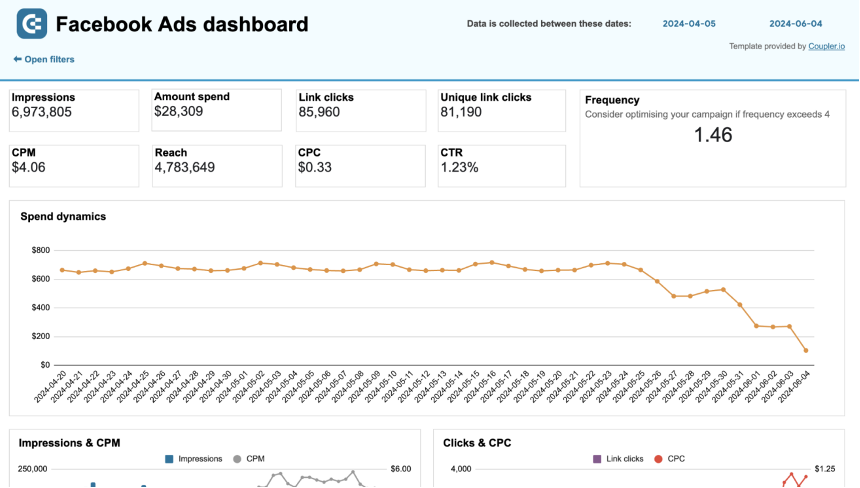
Day 2: Budget Adjustment and First Purchase
Based on Day 1 data, static image ads were paused. The daily budget was increased to $60, with 70% allocated to Video 1.
Day 2 Highlights:
- First purchase recorded from Video 1
- Order value: $76.94 (4-bead pendant)
- Product cost + shipping: ~$11.80
- Gross profit: ~$65
- Buyer used iOS and stayed on page for over 40 seconds
Video 2 had more add-to-carts but still no conversions. Its romantic tone lacked specificity (e.g. no holiday context), and slow pacing in the first 2 seconds likely hurt engagement. CTR was okay at 2.03% but did not lead to conversions.
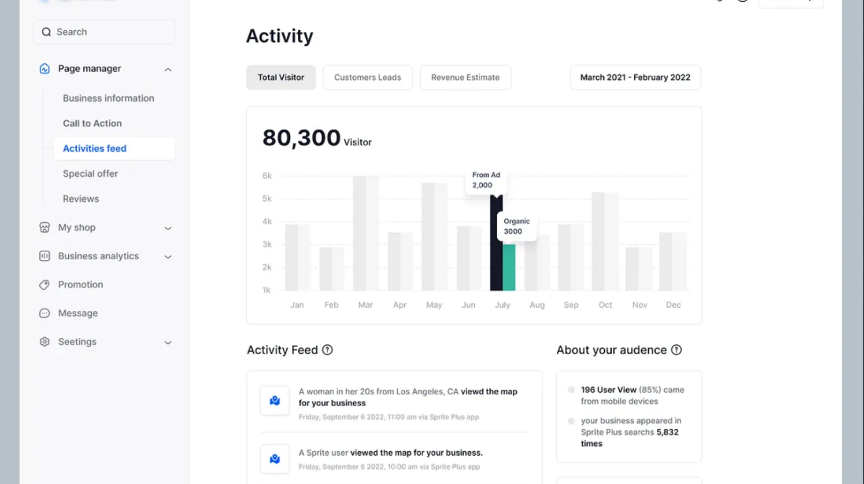
Pic Copilot Optimization Tips: Reviewing the first buyer’s session revealed focus on detailed pendant visuals and bead name preview images.
Pic Copilot was used to generate:
- Zoomed-in bead closeups
- Engraved name previews
- Simulated lifestyle photos showing pendant size in context
Day 3: Scaling Up and New Creative Tests
Without increasing the overall budget, new creatives were introduced: - Video 1 (edited version with captions and emotional music) - Pet-themed carousel image (generated via Pic Copilot)
Day 3 Summary (text version):
- Daily revenue: $337.78
- Orders: - Video 1 (original): 2 purchases - Edited Video 1: 1 purchase - Pet-themed image: 1 purchase
- CTRs all >1.9%, with Video 1 peaking at 2.85%
This showed how creative diversity helps cover emotional angles and audience preferences, setting a solid foundation for scaling.
Overall Revenue Breakdown and Challenge Summary
7-Day Financial Summary
📈 Total Revenue: $758.42
💰 Ad Spend: $312.50
🧾 Product Costs (incl. shipping): $89.40
📦 Platform Fees (Shopify + AutoDS): $17.00
💡 Final Gross Profit: ~$339.52
Although the original goal of $1,000 in revenue was not reached, turning a $500 startup budget into over $300 in gross profit clearly validated the viability of this low-cost model.
Key Takeaways for Replication
- Product Selection: Emotional appeal + demonstrable visuals + variable AOV (customizable) = ideal entry point for beginners
- Brand Building: Quick naming + domain registration + visual assets can all be streamlined with AI tools
- Ad Strategy: Focus on multi-version testing. Early goal is engagement (Add to Cart, time-on-page), then pivot to highest ROI creatives
- Visual Assets: Pic Copilot efficiently supports creation of ad graphics, explainer visuals, and product imagery across TikTok/Facebook/AliExpress
Screenshot:
Alt text: Replicable dropshipping model diagram showing the five-step process: Product → Store → Ads → Orders → Optimization.
Conclusion: A New Starting Point with AI and E-commerce
This challenge demonstrated that a full ecommerce cycle can be executed on a $500 budget. While revenue didn’t hit $1,000, the test proved the high ROI potential of combining AI tools with lean startup tactics.
Future Opportunities:
- More AIGC combinations (text generation, customer profiling, chatbot replies)
- Auto-localized and multilingual visuals
- Cross-platform content sync (Shopify + TikTok + Pinterest + Amazon Handmade)
Want to try your first AI-powered ecommerce model? Start with Pic Copilot—no design experience needed to create quality visuals.
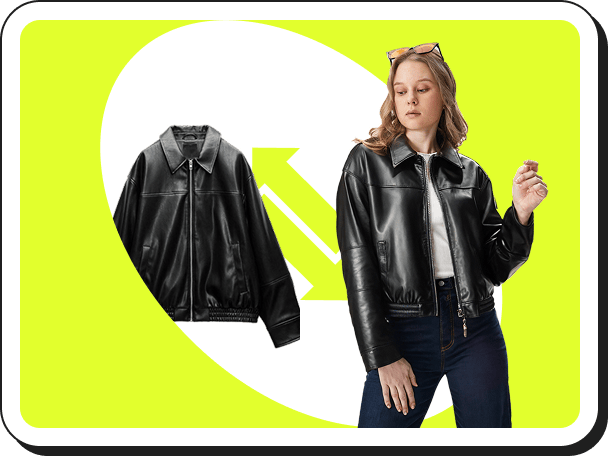 Virtual Try On
Virtual Try On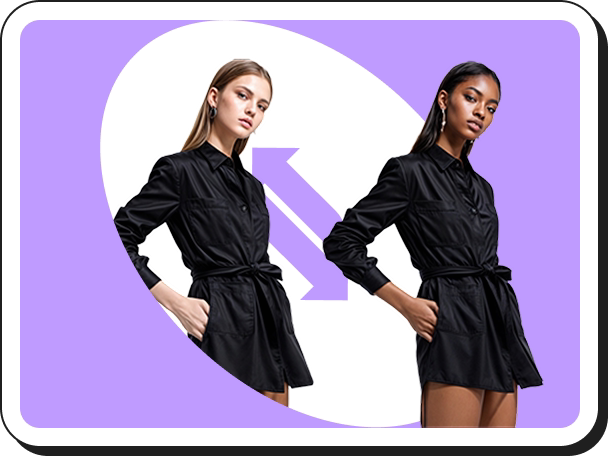 AI Model Swap
AI Model Swap Fashion Reels
Fashion Reels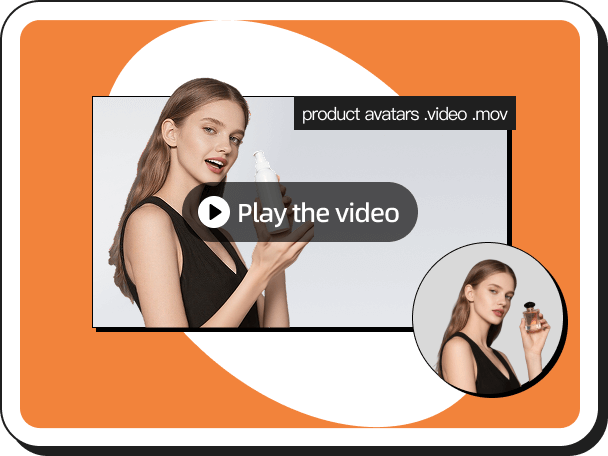 Product Avatars
Product Avatars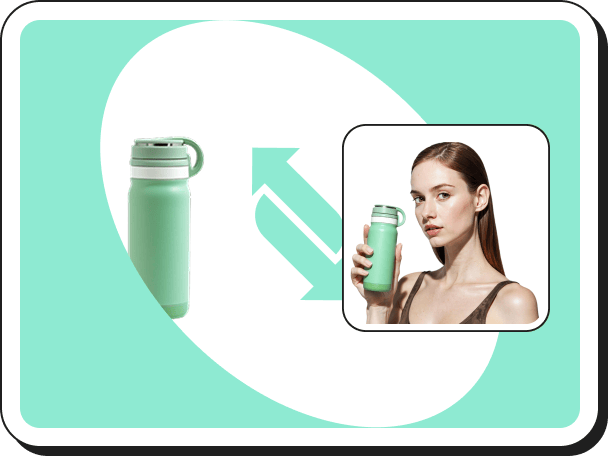 Product AnyShoot
Product AnyShoot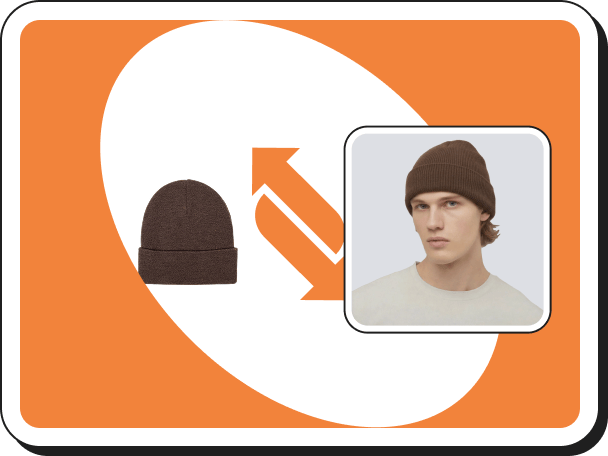 Virtual Try On Accessories
Virtual Try On Accessories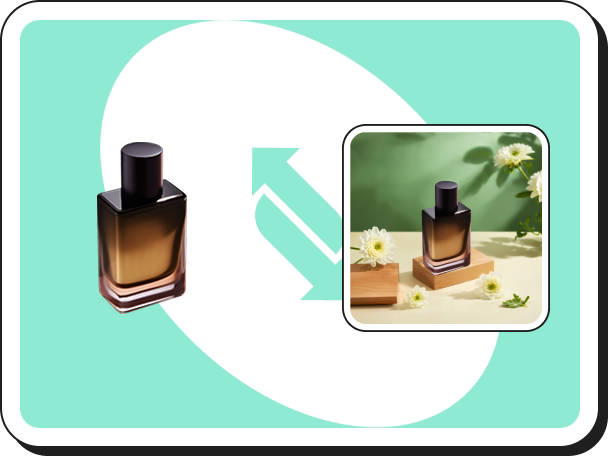 AI Backgrounds
AI Backgrounds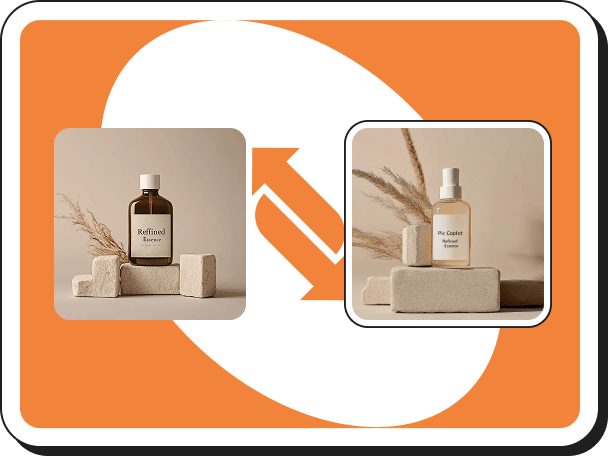 Style Clone
Style Clone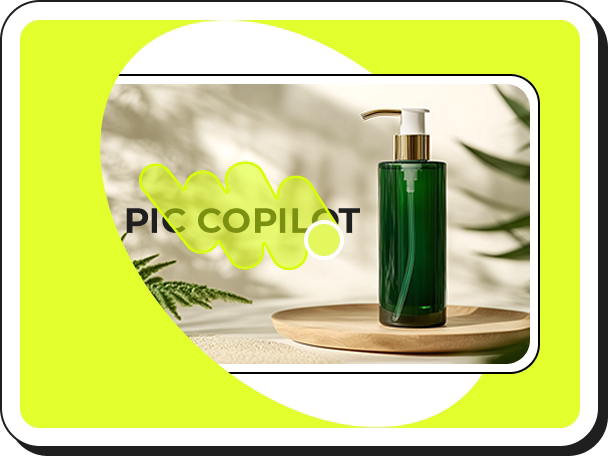 Remove Watermark
Remove Watermark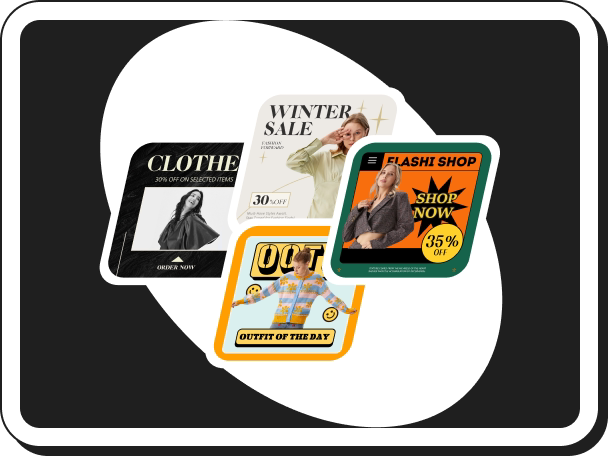 AI Templates
AI Templates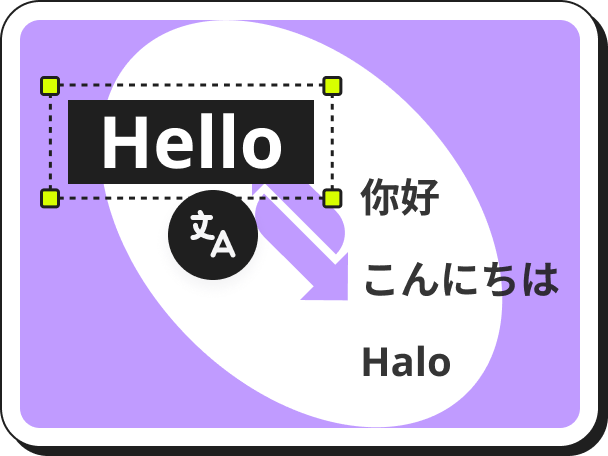 Image Translator
Image Translator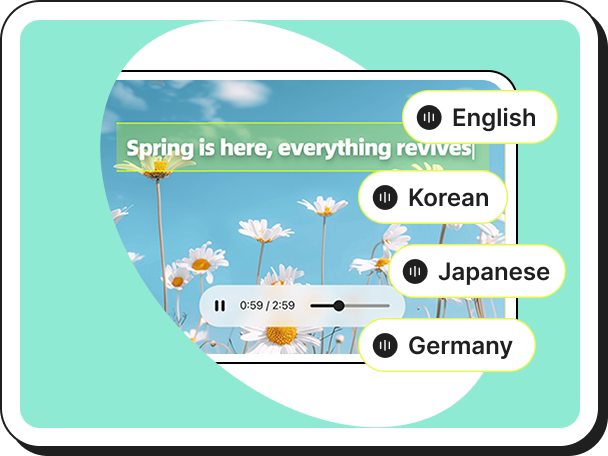 AI Dubbing
AI Dubbing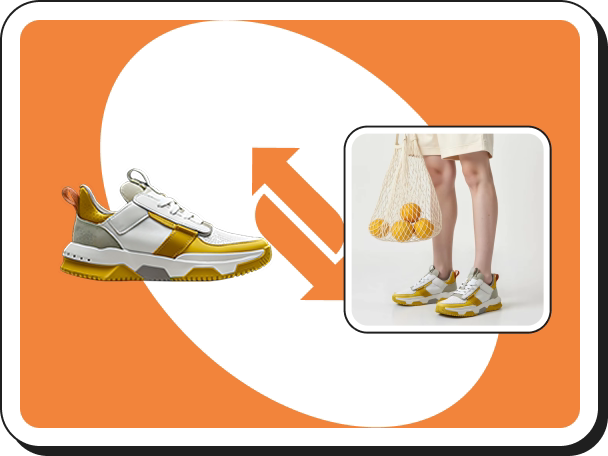 Virtual Try On Shoes
Virtual Try On Shoes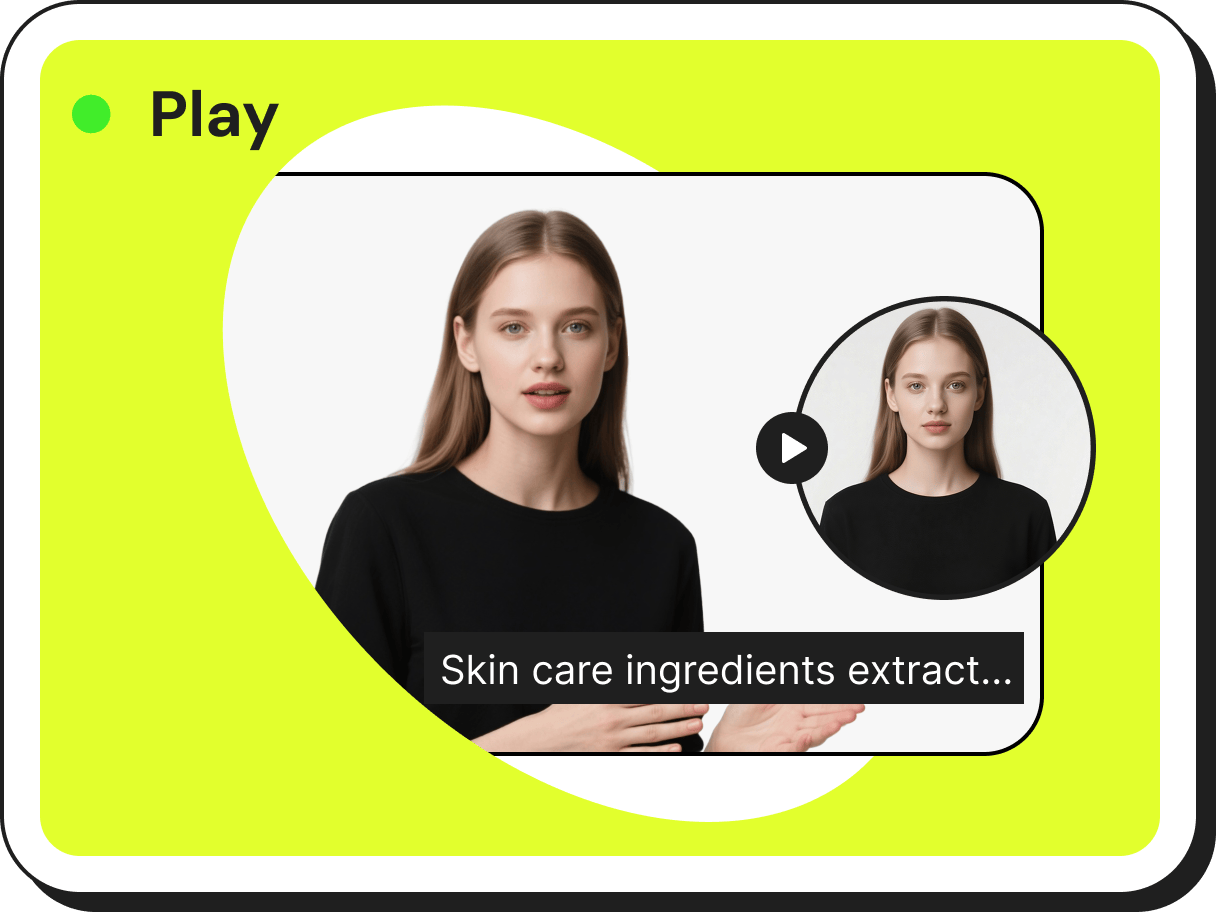 AI Avatars
AI Avatars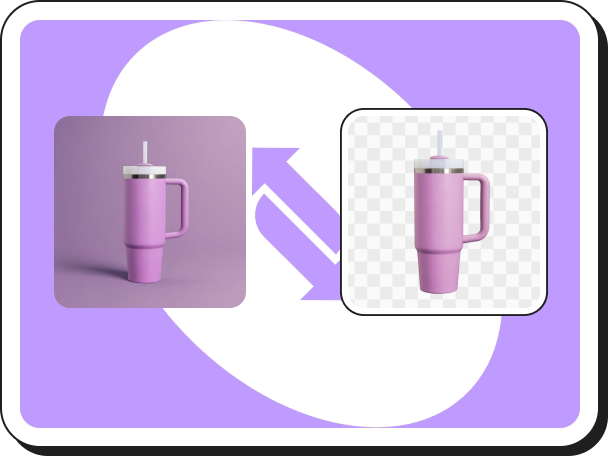 Background Remover
Background Remover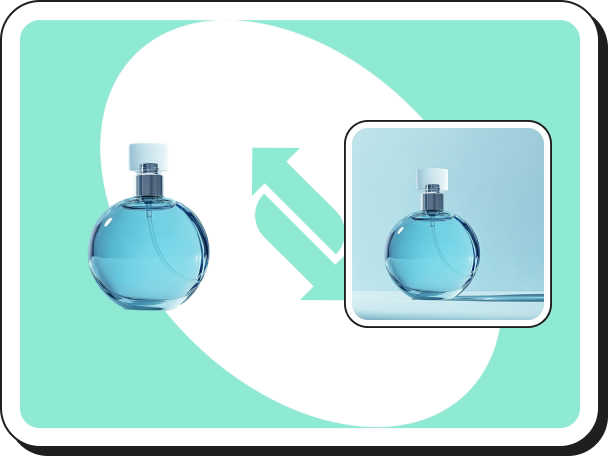 AI Shadows
AI Shadows Image Upscaler
Image Upscaler Image Enhancer
Image Enhancer